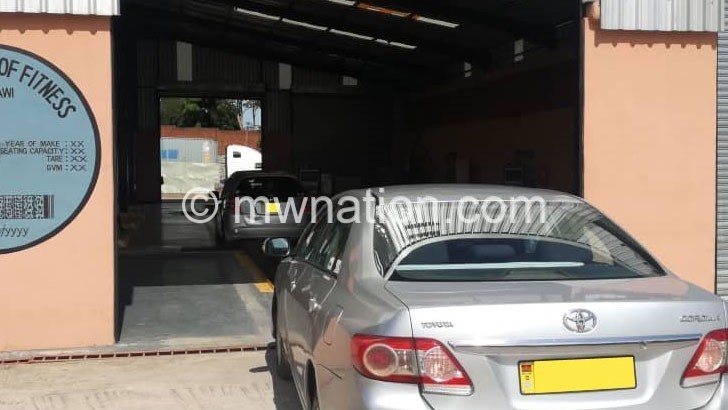Committee takes on govt on carbon tax
Parliamentary Committee on Natural Resources and Climate Change yesterday took government to task over its decision to exempt government vehicles from carbon tax levy, saying revenue is being lost in the process.
Committee chairperson Werani Chilenga said they noted with dismay the exemption, hence there should be a review in the decision.
He was speaking before the Principal Secretary (PS) to the Treasury Cliff Chiunda, Ministry of Natural Resources, Energy and Mining PS Patrick Miranda and officials from Malawi Revenue Authority (MRA) who were summoned to give an update on carbon tax.

Since the introduction of carbon tax three months ago, government has collected K600 million and targets to collect K1.7 billion by June.
Said Chilenga: “We have started well, but our concern is on the criteria used to exempt government cars. We would have collected more if everyone was included, government vehicles, as well as factories and other users.”
The committee noted that carbon tax is only exerted on private individuals, while there are factories and other government vehicles which have private numbers and are exempted.
In September when he was presenting the 2019/20 National Budget, Minister of Finance and Economic Development Joseph Mwanamvekha introduced carbon tax on both local and foreign vehicles as a source of domestic resources for climate change management.
In his response, Chiunda said since the carbon tax levy is new, they are still exploring ways on how to perfect it.
“There are areas we need to look at as we go, and on exemption, we should also do an analysis on which vehicles are to be exempted. We have agreed on continued consultations,” he said.
The committee also asked why the money collected is going to account Number One, but Chiunda said channelling the money into another account would be against the Public Finance Management Act which states that all government money should be consolidated into one account.
“We will come up with a framework on how we will be dispersing the money. We still need to find time and with clear documentation and analysis, we can perfect the carbon tax levy,” he said.
MRA director of planning and research Waziona Ligomeka said the revenue collecting body has so far collected K600 million and expects K1.7 billion by June this year.
He said: “So far, we have collected K600 million. However, we are facing challenges including; lack of interface with Maltis, thereby creating a loophole in abuse; engine size may be falsified as input is done manually; difficult to isolate which vehicles are exempted as we do not have a database of such vehicles [for instance, some government vehicles have private number plates].”
Carbon tax is a tax on motor vehicles paid once a year, it is applicable to locally-registered vehicles as well as those with foregoing registration number plates. MRA started implementing carbon tax on locally-registered motor vehicles on November 25 2019.





